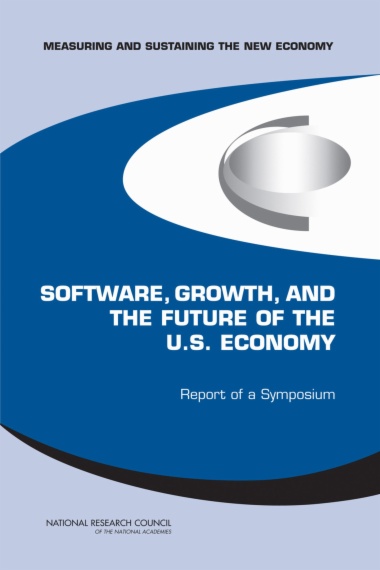Starting in the mid 1990s, the United States economy experienced an unprecedented upsurge in economic productivity. Rapid technological change in communications, computing, and information management continue to promise further gains in productivity, a phenomenon often referred to as the New Economy. To better understand this phenomenon, the National Academies Board on Science, Technology, and Economic Policy (STEP) has convened a series of workshops and commissioned papers on Measuring and Sustaining the New Economy.
This major workshop, entitled Software, Growth, and the Future of the U.S. Economy, convened academic experts and industry representatives from leading companies such as Google and General Motors to participate in a high-level discussion of the role of software and its importance to U.S. productivity growth; how software is made and why it is unique; the measurement of software in national and business accounts; the implications of the movement of the U.S. software industry offshore; and related policy issues.
- Cover
- Front Matter
- I Introduction -- Software and the New Economy
- II Proceedings -- Introduction--Dale W. Jorgenson
- The Economics of Software--William J. Raduchel
- Panel I — The Role of Software — What Does Software Do?
- Panel II — How Do We Make Software and Why Is It Unique?
- Panel III — Software Measurement — What Do We Track Today?
- Panel IV — Moving Offshore: The Software Labor Force and the U.S. Economy
- Panel V — Participants’ Roundtable— Where Do We Go from Here? Policy Issues?
- Concluding Remarks--Dale W. Jorgenson
- III Research Paper -- The Economics of Software: Technology, Processes, and Policy Issues--William J. Raduchel
- Appendix A Biographies of Speakers
- Appendix B Participants List
- Appendix C Selected Bibliography on Measuring and Sustaining the New Economy

